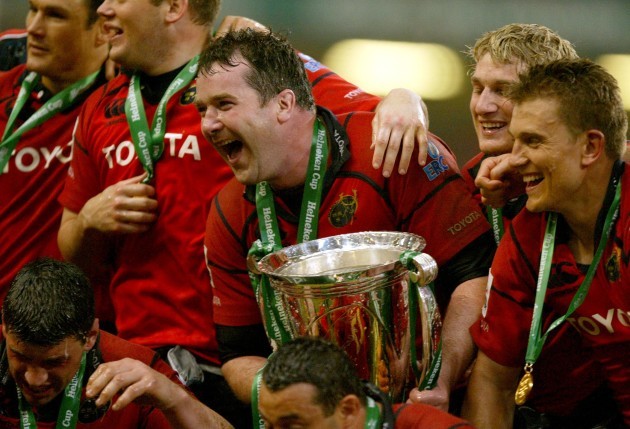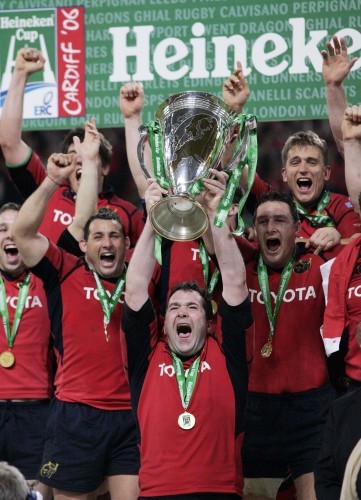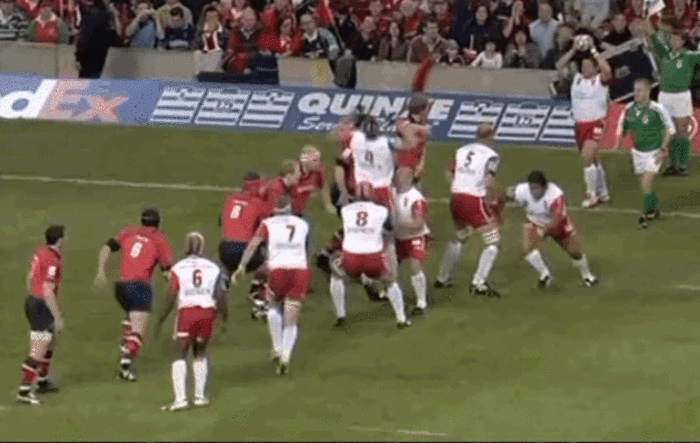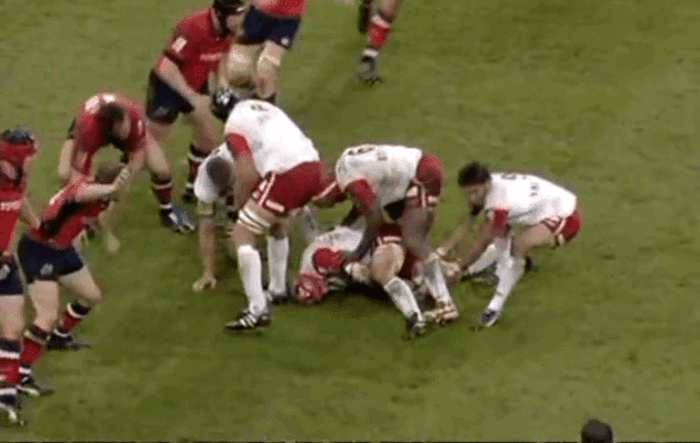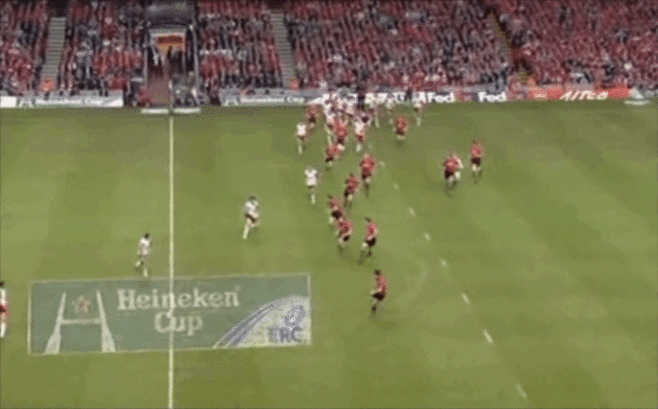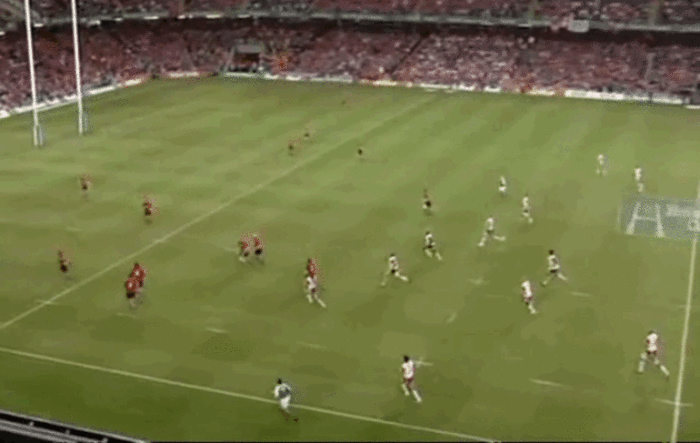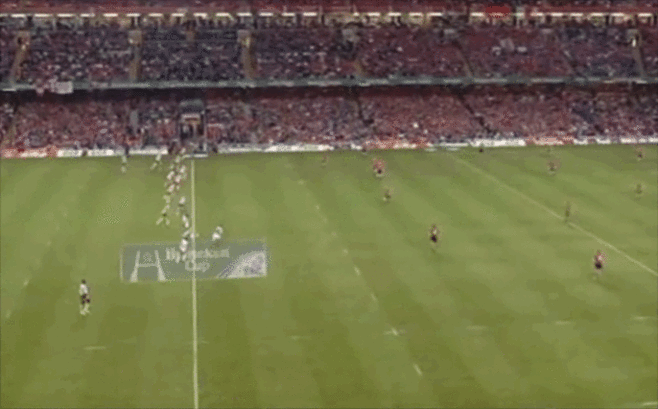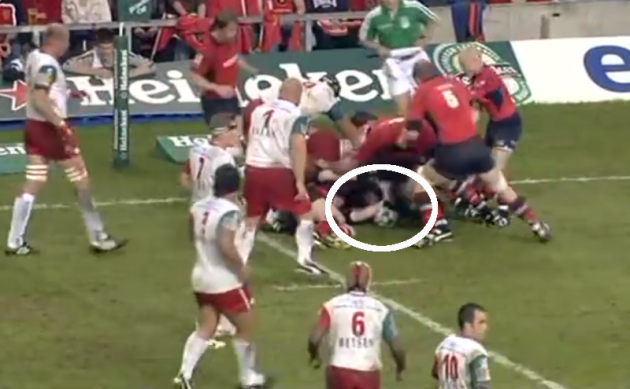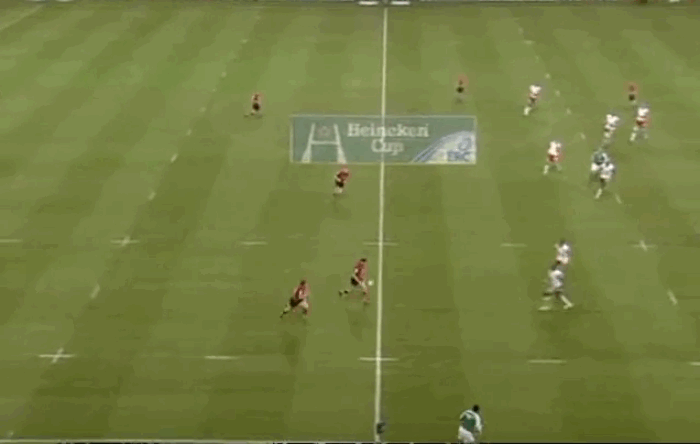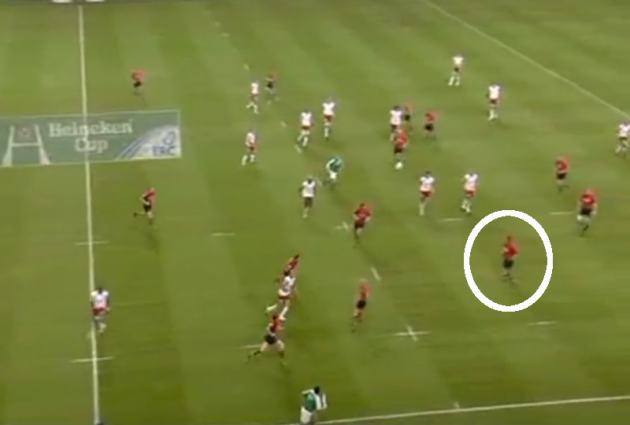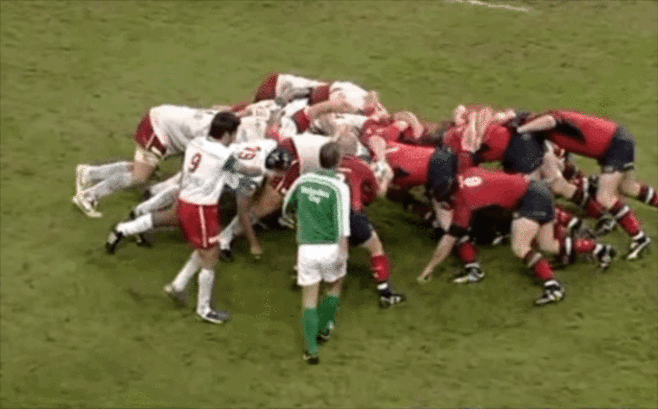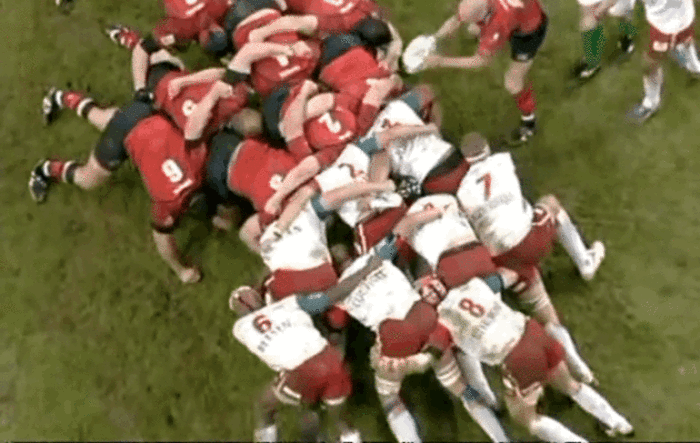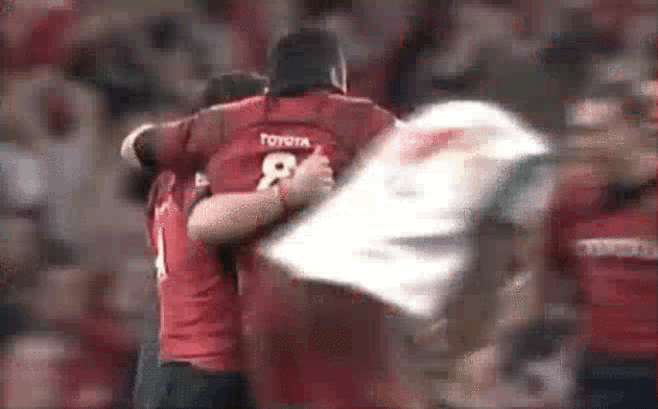Updated at 12.00
ANTHONY FOLEY WAS there for every step of Munster’s journey towards the holy grail.
He was there in 1995, when the province played their first-ever Heineken Cup game. He was there to suffer the pain with his friends and team-mates in 2000. He was there to deal with the frustration of 2002.
And he kept coming back for more, turning up for Munster.
To see him lift the 2006 trophy as captain was a joyous moment for everyone involved with the province. For everyone in Irish rugby. Even for the neutral watching on.
No one could begrudge Axel that moment. No one will forget it.
“The night before, towards the end of Axel’s team talk, I could hear his voice cracking with emotion and I saw his lips quivering,” is how Paul O’Connell remembers the eve of the game in his autobiography The Battle.
He was one of the original standard-setters. He’d started the first Heineken Cup game Munster every played, eleven years before, and he was the final survivor of that team. He held himself together, but it didn’t do any of us any harm to see what it meant to him.”
Foley backed up his pre-match emotion with a typically robust, selfless, aggressive and gritty performance in the final against Biarritz on that special day at the Millenium Stadium.
A day when Munster’s relationship with their fans, the hurt they had been through collectively, meant that even the hundreds of kilometres between Cardiff and Limerick couldn’t truly separate them.
Foley had some extraordinary skills, but his displays were so often about doing the unglamorous work, the unseen nuts and bolts. His influence over others was sometimes hard to quantify, but it came through in that historic game too.
Setting the tone
Foley’s “rugby is basically a street fight with a ball” is a famous quote, although it doesn’t totally sum up what he brought. There was always subtlety and intelligence in his game, an appreciation for space that was married to his fine skills.
That said, he was one of the Munster warriors who understood that the physical battle in rugby is first and foremost. If you are not willing to confront and overcome your opponent in contact, then you might as well roll over and concede the game.
Foley so often led the physical contest for Munster and Ireland.
Above, we see the first ruck of the 2006 final. Biarritz lose their lineout to David Wallace at the tail and the Munster openside is tackled to the ground by Serge Betsen.
Suddenly, second row David Couzinet is a threat to the ball on the ground and looks to jackal over it. Denis Leamy and Paul O’Connell are on the scene, but can’t quite shift the determined Couzinet away.
Foley arrives third to the ruck and makes his point.
It’s not a linebreak or a huge tackle to announce Foley’s arrival into the game, but it’s a powerful ruck hit on Couzinet that lets the French lock and Biarritz know exactly what Munster intend to bring.
Impact
Foley’s desire to lay down the physical marker shows up in his tackling in this game too, with the early right-shouldered shot below providing one example.
Benoît August rides the big moment of contact well, but Foley cleverly readjusts to target the ball and almost force it loose. Biarritz are fortunate to retain possession on the deck.
Perhaps most impressive is the second-half hit below, with the Top 14 side desperate to claw their way back from a 20-10 deficit.
The high-profile Damien Traille pirouettes inside the tackle attempts of Trevor Halstead and Leamy, but tighthead John Hayes is in position to grasp the France centre.
In the blink of an eye, Foley hammers in to wrap Traille up and shunt him backwards, driving him into the deck for good measure. Munster are awarded the scrum after a huge contribution from captain Foley that clearly lifts his team.
I went on to the pitch with a massive desire to be a stand-out player, so that Anthony Foley would think more of me,” is how O’Connell speaks about playing alongside the number eight in his autobiography.
Acts like this hit from Foley set the standard.
Front foot
Foley was not the most explosive athlete in this Munster team, or in the Irish teams he represented so proudly, but he almost always made an impact with his ball-carrying.
The likes of Leamy, David Wallace, and Halstead were primary carriers under Declan Kidney, though Foley was an equally important figure in sharing that workload.
We get an example above, at an important time in the game. Munster have scored a try through Peter Stringer to take the lead for the first time and clearly that needs to be backed up solidly.
There’s no better man than Foley to find himself under the restart, gathering, accelerating and thundering into August for a dominant carry that lays an ideal platform for Munster to exit.
Foley possessed good footwork in his carrying game too, but this instance demanded another physical assertion of Munster’s new-found position of scoreboard control and Foley didn’t flinch for a split second.
Set-piece
The number eight’s lineout work in the final mainly involved lifting towards the tail as the likes of O’Connell and Donncha O’Callaghan provided the primary targets. His work in that set-piece was done without fuss.
He also contributed handsomely to the restarts, with one example coming above.
Biarritz had enjoyed a good start in this department, winning back the very first kick-off in the final, but Foley was prominent in wrestling back control. Below, we see a perfect example of that.
Again, the restart comes at an important time, with Ronan O’Gara having extended Munster’s lead to 20-10. This time, Foley is under direct pressure from the imposing Jean-Baptiste Gobelet. Again, Foley doesn’t shirk the challenge.
A clean take, and then the cleanest of ball presentation on the ground.
This is not a glamorous moment from Foley, but his ability to take the ball cleanly under pressure and present it back on Munster’s side safely allows them to retreat and ensure Biarritz can’t counter-ruck for a turnover.
Foley makes his team-mates’ lives easier by doing the basics well.
In support
Foley always read the game superbly, thinking ahead and invariably being in the right position to support his team-mates.
That ability came from his detailed study of video footage, hours spent watching rugby and many discussions of the game with fellow disciples of the oval ball.
We see Foley’s ability to read the play in the instance above, which kick-starts the try Halstead finished over near the left corner to bring Munster back into the game after Sireli Bobo’s early score.
Foley is actually moving back down the field as O’Gara chips ahead.
With right wing John Kelly chasing the kick, Foley is thinking like any good number eight.
Do I need to drop and cover the backfield in case Biarritz pick the ball up and kick for distance?
However, Kelly gets onto the bouncing ball to tap it inside to Jerry Flannery, and Foley readjusts rapidly. Flannery finds O’Connell and though there might have been danger of the lock being isolated, Foley is on scene.
The number eight grips and rips the ball away from O’Connell, setting up a mini-maul in the process. Biarritz ground it, but Munster are able to play away to the left and eventually score through the powerful Halstead.
Without Foley’s reaction, the move might well have been swallowed up with O’Connell’s carry. Foley was always alert and reading the game.
Scrum skills
Foley’s excellent skillset meant he was adept at the tail of the scrum, either through his control with the feet or in launching moves from the base.
We see the latter in the case above, with Foley delivering clean possession to Stringer from the base of the scrum, despite the pressure from Betsen and Dimitri Yachvili.
Foley’s control was always intuitive and understanding, one of his more subtle skills in the game.
Leadership
Foley’s high-quality leadership is a little more difficult to demonstrate through clips, but perhaps Stringer’s iconic moment in this 2006 final is the finest example.
On the 30:02 mark, Munster have a penalty 45 metres out from goal, to the right of the posts. Not an easy shot, but certainly within O’Gara’s capability.
The score is tied at 10-10, Munster having overcome that initial blow of conceding a try to Bobo. Most captains would have opted for the posts.
But Foley backed his team, backed them to continue their growing momentum and seize their opportunity. To touch Munster went, and after a scrum re-set, Stringer brilliantly dotted down on the 31:20 mark.
Stringer’s quick-thinking is clearly the main reason for this try, as he spots Bobo wandering over to the right side of the scrum and takes a chance to dart to the blindside even after his back has been turned.
Foley’s body positioning is ideal, however, as he opens up the back of the set-piece for his scrum-half, without letting the ball out and therefore giving Biarritz time to react.
While Foley himself may have been surprised at Stringer’s decision, he’s up and away from the scrum in support, watching on as his team-mate and friend scores an unforgettable Munster try.
Axel’s moment
None of the moments above are as iconic as Stringer’s try, but they are arguably just as important.
Foley certainly had some scintillating moments in his career, flashes of his footballing brilliance, but his team-mates always respected the hard work he put in to ensure that others could hog the limelight.
They appreciated him as a man and a friend, first and foremost, but he was also the team-mate that every player wanted on their side.
- Originally published at 18.00 on 17 October
The42 is on Snapchat! Tap the button below on your phone to add!
